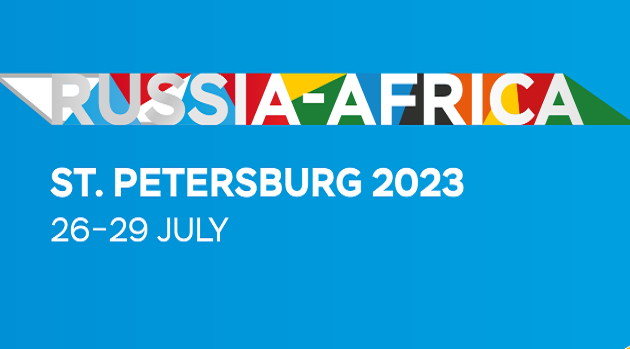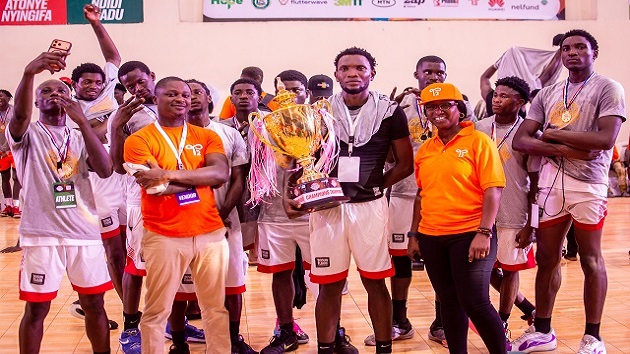General News
Celebration of the UN Russian Language Day

Russian Language Day is celebrated worldwide on June 6, the birthday of the greatest Russian poet Alexander Pushkin. It was initiated by the UN in order to support and promote multilingualism and cultural diversity.

One of the goals of this programme is to uphold the equality of all six official languages of the UN: Arabic, Chinese, English, French, Russian and Spanish.
The Russian language is one of the world’s most widespread languages: it is currently spoken by 254 million people1, 1.3 of which in the Middle East and North Africa and 100 thousand in Sub-Saharan Africa2.
This makes it substantial for international communication. The Russian diaspora in African countries is one of the most representative with two to fifteen thousand Russian speakers living in each state3. Not surprisingly the cultural interaction between Russia and Africa has become stronger and deeper over the years.
Educational opportunities for African students have been expanding for many years aligned with the Russian language earning more recognition. Russia ranks 6th in the number of foreign students, with 35,000 of them coming from African countries4. Moscow is home to the Institute of Africa of the Russian Academy of Sciences and the Peoples’ Friendship University of Russia, which recently reclaimed the name of the great fighter for the independence of Africa Patrice Lumumba.
This spring the Ministry of Education and Science of Russia announced a doubling of the number of budget places in Russian universities for students from African countries as part of expanding humanitarian cooperation.
Next year their number will be up to 4.7 thousand places5. Other programmes that are currently developed include the opening of Russian educational centers in Africa and the training of national teachers to staff African secondary schools6.
Cultural exchange and humanitarian cooperation between Russia and Africa will be one of the main themes of the forthcoming Second Russia-Africa Summit and Economic and Humanitarian Forum, which will be held from 26 to 29 July in St. Petersburg.
The summit is the key and largest-scale event in Russian-African relations. It will identify new vectors for expanding cooperation between Russia and Africa in all spheres: politics, security, economy, science and technology, cultural and humanitarian spheres. The event is aimed at bringing about a fundamentally new level of mutually beneficial partnership to meet the challenges of the 21st century.
General News
NDIC Reinforces Full Oversight Compliance to Safeguard Depositors

Mr. Thompson Sunday, the Managing Director/Chief Executive of the Nigeria Deposit Insurance Corporation (NDIC), has reaffirmed the Corporation’s strict compliance with fiscal and financial regulations, including the provisions of the Fiscal Responsibility Act (FRA) 2007, noting that the NDIC has consistently remitted the required percentage of its earnings to the Federal Government.

Mr. Sunday made this known during a courtesy visit to the Managing Director/Chief Executive of the Ministry of Finance Incorporated (MOFI), Dr. Armstrong Takang, as part of NDIC’s ongoing engagement with key stakeholders following his formal assumption of office in July 2025.
According to him, NDIC takes financial accountability and transparency seriously, stressing that the Corporation complies fully with statutory remittance obligations, including the payment of 20 per cent of gross earnings or 80 per cent of net surplus to the Federal Government, as applicable. He added that NDIC also submits its financial statements ahead of statutory deadlines.
The NDIC MD/CE explained that this culture of compliance aligns with the Corporation’s role as a key institution within Nigeria’s financial safety-net, charged with protecting depositors and promoting confidence in the banking system. He emphasized that adherence to fiscal discipline remains central to NDIC’s credibility and effectiveness.
Mr. Sunday further disclosed that NDIC also complies with the Federal Government’s 50 per cent cost-to-income ratio policy, although he noted that the policy poses operational constraints. He explained that the deductions affect NDIC’s ability to build a strong Deposit Insurance Fund, which is needed to respond effectively to bank failures.
He stressed that international best practices under the Core Principles for Effective Deposit Insurance issued by the International Association of Deposit Insurers (IADI) require deposit insurers to maintain adequate funds to reimburse depositors when banks fail without recourse to government, adding that the NDIC is seeking an exemption to strengthen its capacity in this regard.
Mr. Sunday described MOFI as a critical stakeholder, noting that the Federal Government, through MOFI, holds a 40 per cent equity stake in NDIC. He said sustained collaboration with MOFI is essential to ensuring that NDIC continues to meet its obligations to government while effectively safeguarding depositors’ funds.
In his remarks, Dr. Takang commended the NDIC for its exemplary collaborative spirit and acknowledged the Corporation’s compliance with fiscal regulations. He assured that MOFI would continue to engage the Federal Ministry of Finance on NDIC’s behalf, noting that a strong NDIC is vital to sustaining confidence in Nigeria’s financial system.
Both institutions reaffirmed their commitment to continued cooperation, transparency and accountability, with Mr. Sunday reiterating that NDIC remains focused on balancing regulatory compliance with its overriding mandate of depositor protection and financial system stability.
General News
T2 Backs Youth Excellence as NCBC Wins Bosun Tijani Foundation Basketball Tournament

T2 has reaffirmed its commitment to youth development and excellence through sport as the NCBC basketball team, adopted by the brand, emerged champions of the Bosun Tijani Foundation Youth Basketball Tournament held at the Alake Sports Complex, Ijeja, Abeokuta.

The tournament, organised by the Bosun Tijani Foundation in collaboration with the Ogun State Government and supported by several partners including T2, brought together 12 competitive teams from across Nigeria, positioning basketball as a powerful platform for youth engagement, discipline, and opportunity.
NCBC’s championship run reflected the values T2 seeks to champion, work ethic, intelligence, teamwork, and resilience. The team recorded commanding victories over Team Vision, Warlords, and Elevate before defeating the Ilupjeu Raiders 66–52 in a gripping final.
Commenting on the adoption of the team, Seni Ogunkola, Vice President, Brands and Communication, T2 stated “NCBC embodies the qualities we believe in, exceptional work rate, intelligence on the ball, discipline, and a hunger to excel. By supporting them, T2 is investing in potential, purpose, and the next generation of leaders on and off the court.”
The climax of the event saw His Royal Highness, Oba Adedotun Gbadebo, the Alake of Egbaland, alongside Nigeria’s Minister of Communications and Digital Economy, Bosun Tijani, present the trophy to the victorious team, drawing rapturous applause from spectators. The event was also attended by the Chief of Staff to Ogun State Governor Dapo Abiodun, Mr. Lere Olayinka, and the Ogun State Commissioner for Sports, Honourable Wasiu Isiaka, underscoring strong institutional support for youth-focused initiatives.
Through its participation in the tournament, T2 continues to position itself as a brand that goes beyond sponsorship, championing platforms that unlock talent, inspire ambition, and create lasting social impact for Nigerian youth.
General News
Ecobank Guarantees Seamless Digital Banking Services Throughout the Christmas and Year-End Period

Ecobank Nigeria, a member of Africa’s leading pan-African banking group, has assured customers of uninterrupted access to banking services throughout the year-end holiday period via its secure and robust digital platforms. The Bank also urged customers to remain vigilant against fraud and scams during the festive season.

Ecobank Bank
Speaking on the development, Victor Yalokwu, Head, Products & Analytics, Consumer & Commercial Banking, Ecobank Nigeria, said the Bank’s digital channels – including the Ecobank Mobile App, Ecobank Business App, USSD *326#, Ecobank Online, OmniPlus, Omnilite, EcobankPay, RapidTransfer, Ecobank Cards, ATMs, PoS terminals, and over 35,000 Ecobank Xpress Point (Agent Banking) locations nationwide – will remain fully available to support customers throughout the yuletide and year-end holiday period.
He noted that customers will continue to enjoy a wide range of services during the period, including local and international funds transfers, bill payments and airtime top-ups, merchant payments, balance inquiries and account statements, as well as cardless cash withdrawals via ATMs.
According to Yalokwu, “Ecobank encourages customers to leverage these digital solutions for safe, fast, and efficient banking, especially during the festive season when convenience and reliability are essential.
“While physical branch operations may be subject to adjusted working hours in line with public holidays, customers can be assured that Ecobank’s digital platforms are designed to deliver uninterrupted service and enhanced security at all times.
“Ecobank remains committed to providing innovative financial solutions and exceptional customer service, and we wish all our customers a joyful festive season and a prosperous New Year.”
Yalokwu also cautioned customers to remain vigilant against fraudsters and scammers during the period. “Before you wrap up the year, tighten your security. December brings online sales, travel, and year-end distractions—this is exactly when scammers are most active. From fake festive deals to cloned merchant sites and suspicious messages, staying vigilant helps keep your money safe.”
He advised customers to shop only on trusted websites, never share their PINs, passwords, or one-time passwords (OTPs), avoid banking on public Wi-Fi networks, be cautious of urgent or emotionally charged messages, and regularly review their account activity.

 Telecom2 days ago
Telecom2 days agoGoogle Finally Allows Users to Change Gmail Address, Keeps Data and Services Intact

 News2 days ago
News2 days agoInsomniaQ Spotlights African Creativity in Lagos

 General News2 days ago
General News2 days agoT2 Backs Youth Excellence as NCBC Wins Bosun Tijani Foundation Basketball Tournament

 E-Financial1 day ago
E-Financial1 day agoNigeria’s N58.18trn Budget and Rising Cost of Deficit Governance

 Telecom1 day ago
Telecom1 day agoNnaemeka Ani – The Architect of ‘Code and Courage’

 Telecom1 day ago
Telecom1 day agoMTN Nigeria Appreciates Partners, Customers at Lagos Prestige Experience

 Telecom5 hours ago
Telecom5 hours agoNCC Unveils Draft 5-Year Spectrum Roadmap, 60 GHz License-Exempt Guidelines to Boost Broadband, Innovation

 Telecom5 hours ago
Telecom5 hours agoMTN Nigeria Crowns Ayo Benzi Winner of Next Afrobeats Star














